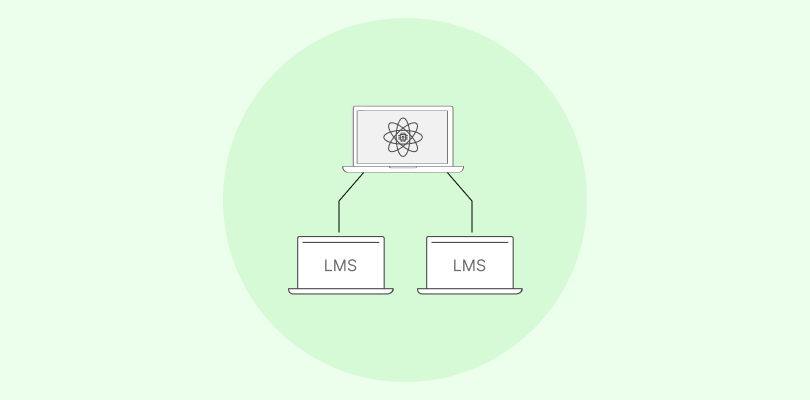Being in the training industry, I’ve witnessed the power of online learning firsthand. Gone are the days of static content and inflexible schedules. Today’s learners demand engaging learning experiences that equip them with valuable skills and certifications at their own pace.
I’ve shared below a curated list of the 12 most impactful online eLearning courses.
Also, I’ll explain the benefits of eLearning and discuss some of the best eLearning tools available on the market.
What Are eLearning Courses?
“E-learning describes a set of technology-mediated methods that can be applied to support student learning and can include elements of assessment, tutoring, and instruction” (e-Learning and Digital Learning).
eLearning courses are online courses that allow you to learn at your own pace and schedule. They are typically delivered through a learning management system (LMS) and can include various content, such as videos, text, quizzes, and assignments. eLearning courses can be a great way to learn new skills, update your knowledge, or earn a certificate or degree anytime, anywhere, and on any device.
12 eLearning Courses for Employees
Throughout my experience, I’ve observed that many organizations commonly incorporate the following courses for employee training.
Check out the list below:
1. Federal Sexual Harassment Training
Between FY 2018 and FY 2021, the EEOC received a total of 98,411 charges alleging harassment under any basis and 27,291 charges alleging sexual harassment.
That’s why you should conduct sexual harassment training in your workplace.
ProProfs Training Maker offers an online Sexual Harassment Prevention Training course, aiding organizations in complying with federal and state regulations.
I would say this is one of the most comprehensive elearning courses that cover crucial topics like types of harassment, retaliation, and the responsibilities of supervisors. With real-life scenarios, interactive quizzes, and a self-paced learning structure, this course ensures adequate understanding and retention.
The platform also provides auto-generated reports, 24/7 support, and flexibility for employees to access courses anytime, anywhere. This online elearning course meets federal and state requirements, including California, Connecticut, Delaware, Illinois, and more.
2. Diversity, Equity, and Inclusion Training
This elearning course has been a savior for my organization. Our company has employees from different cultures, backgrounds, and perspectives. I noticed that some of my colleagues had conflicts and misunderstandings due to their different communication styles and assumptions.
I realized we needed to improve our diversity awareness and skills to work effectively as a team. That’s why we organized a diversity training session.
This course helped us foster a workplace that embraces diversity and equality. Expert instructor Amber Rose leads the program. The course covers fundamental concepts of diversity, equity, and inclusion and offers insights into their significance and practical steps for implementation.
3. Handling Microaggressions in the Workplace
75% of employees have reported experiencing microaggressions in the workplace.
Microaggressions can affect the mental and physical health of an individual, as well as their team dynamics and productivity. Therefore, it is crucial for organizations to recognize and address microaggressions and foster a culture of inclusion and respect for all.
This online training program, “Handling Microaggressions in the Workplace,” is designed to eradicate harmful statements and behaviors that border on microaggression.
Led by experienced psychologist and trainer Carolina Greno, the course provides a comprehensive understanding of microaggressions, offering practical strategies to prevent and address them effectively. The curriculum includes engaging elements such as handouts, case studies, scenarios, flashcards, and a final assessment.
4. How to Set SMART Goals
If you don’t set SMART goals, you may end up with vague, unrealistic, or irrelevant goals that are hard to follow through or evaluate. You may lose motivation, direction, or accountability. You may also miss opportunities for improvement, feedback, or recognition.
Therefore, setting SMART goals can help you achieve your desired outcomes more effectively and efficiently.
This training course teaches how to set and achieve SMART goals for business success. Kristen Earp, a seasoned leadership coach and trainer, guides participants through the importance of formulating clear, concise, and relevant goals that are easy to measure and achieve.
The course covers various examples and scenarios. The final assessment in this program adds a valuable resource for those aiming for clarity of vision and focused efforts in their professional and personal lives.
5. How to Build an Ethical Work Culture
Discover the importance of fostering an ethical work culture with this course guided by James Galluzzo, a seasoned HR and leadership development consultant with over 25 years of experience.
In a PwC study, 63% of employees noted a lack of consistency between leaders’ actions and organizational values. An ethical culture, crucial for building trust, forms the foundation of successful teams.
This is one of the best elearning courses that delve into individual responsibility, the shift from individual to collective ethics, and the principles of fairness, equity, and honesty. It equips organizations with the capacity to establish and maintain an ethical work culture, attracting top talent aligned with shared values.
Build trust, collaboration, and a thriving workplace with this invaluable resource. This is a mini-course developed from the comprehensive “Ethics Training in the Workplace.”
6. Understanding the Code of Conduct Training
Another elearning course I would suggest is the Code of Conduct Training Course. It is designed to empower businesses to establish and reinforce behaviors expected of an individual or group.
This course guides participants through creating a model code of conduct, covering topics such as appropriate and inappropriate behavior and applying code of conduct standards to business operations.
With a structured curriculum, the course includes modules on understanding the code of conduct, its application, and methods for reviewing best practices.
7. Employee Discipline Training Course
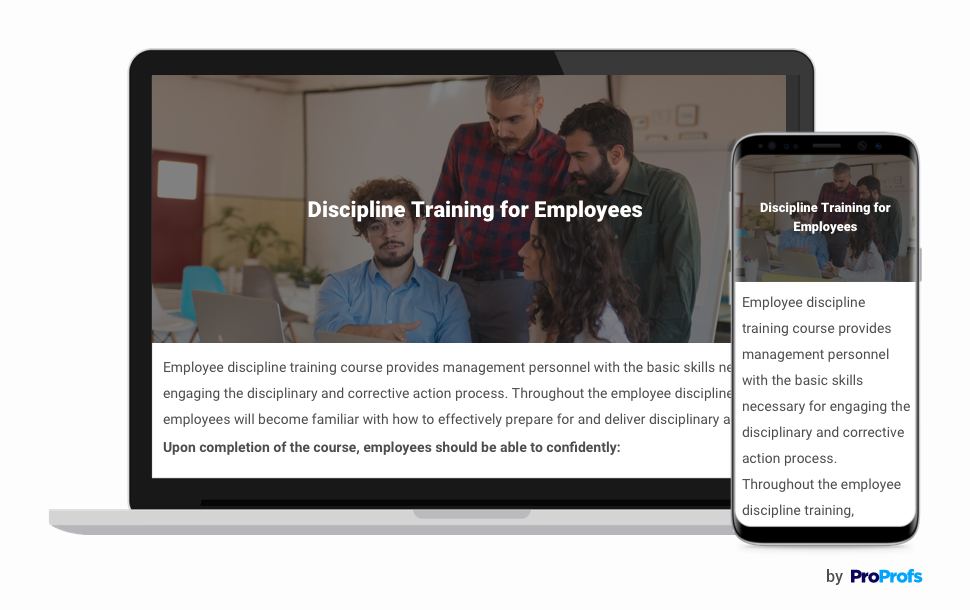
According to the US Bureau of Labor Statistics, 4.5% of employees faced disciplinary action in 2022.
This course covers a comprehensive range of topics, including common disciplinary issues, corrective actions, and best practices. Participants can assess their knowledge through quizzes at the end of each chapter.
This online training course is designed to equip management personnel with essential skills for effective workplace discipline implementation. It aims to empower them to establish efficient disciplinary or corrective procedures. If you seek an understanding of the mechanics of workplace discipline, this course is for you.
8. Manage Your Task, Time, and Stress
According to a study by Timewatch, 91% of people agreed that better time management would reduce stress at work, 90% agreed it would increase productivity, and 82% agreed it would give them more confidence at work.
As you can see from the above stat, it’s important to manage not just your time but also your stress levels. So, here’s a course that would help accomplish this goal.
Delivered by award-winning transformational coach David Thirumur, the course guides participants on optimizing their time, overcoming procrastination, and controlling stress triggers to maintain well-being.
The curriculum covers task, time, and stress management, offering practical insights into creating a positive work environment. With a focus on removing distractions and completing tasks efficiently, this course is ideal for individuals seeking to improve efficiency in the workplace.
9. General Data Protection Regulation Training
GDPR training helps employees comply with data protection regulations, safeguard sensitive information, ensure privacy, and reduce the risk of data breaches and fines. By learning about the GDPR principles, rights, and obligations, employees can handle personal data better.
This online elearning course delves into the basics of GDPR, covering its origins, data protection concepts, and individuals’ rights to data. Participants will learn how to analyze situations where GDPR comes into play, manage data effectively, and report breaches.
The comprehensive curriculum includes a course overview, historical context, introduction to GDPR, data subject rights, data management, breach notification, and a conclusion.
10. Core Leadership Skills
“The function of leadership is to produce more leaders, not more followers.” — Ralph Nader.
That’s what this course on “Core Leadership Skills” aims to teach. Led by experienced instructor James Galluzzo, this course explores the timeless leadership skills essential for personal and professional growth. It covers emotional intelligence, communication, vision & planning, and ethical leadership.
Participants gain practical insights through a comprehensive curriculum with a course overview, worksheets, quizzes, and more. The course also provides valuable resources, including handouts and real-world scenarios.
11. Active Listening Skills
Poor listening habits and skills affect more than 70% of all employees, resulting in misunderstandings, errors, missed opportunities, arguments, stalled projects, and damaged relationships.
One case study that illustrates the importance of active listening in the workplace is from CHaRM HRM, a human resource management consultancy. The case study involved a manager who had to deal with a performance issue of one of his employees. The employee had been late for work several times and had missed some deadlines. The manager decided to have a meeting with the employee to address the problem and give him a warning.
The manager used active listening techniques during the meeting to understand the employee’s perspective and situation. He asked open-ended questions, paraphrased the employee’s words, and showed empathy and respect. He also gave constructive feedback and offered support and guidance. The employee felt heard and appreciated and explained that his personal issues affected his work performance. He apologized for his mistakes and agreed to improve his work habits.
The case study shows that active listening can help managers handle difficult conversations with their employees respectfully and effectively.
If you want your employees to learn this essential skill, try the Active Listening Skills course by ProProfs Training Maker.
Led by experienced instructor Amber Rose, this online elearning course provides valuable insights into understanding others at a deeper level and responding appropriately. Participants will discover the ten key active listening skills for resolving workplace conflicts and improving communication.
12. Emergency Action Plan Training
Emergency Action Plan (EAP) training is important for every organization to prepare and respond to emergencies effectively.
I saw how EAP training helped my company when there was a fire in the warehouse. The employees knew how to evacuate safely, use fire extinguishers, and alert the authorities. They also followed the instructions of the designated emergency coordinator and reported to the assembly area. The fire was contained quickly, and no one was injured.
Emergencies can happen anytime, and you should keep your employees prepared. This 30-minute training in English and Spanish guides participants to create and implement effective emergency action plans.
The course covers the purpose of EAPs, key elements, training procedures, and essential recordkeeping. Adhering to OSHA compliance, the course offers self-paced learning accessible on various devices.
What Are the Benefits of eLearning Courses?
If you are looking for a modern way to train your workforce, you might want to consider eLearning courses. Learners can progress at their own pace and convenience, free from time or location constraints. Access to course content is available anytime, anywhere, on any device.
Global connections highlight the ability to engage with peers worldwide, fostering community and collaboration. This enhances cultural awareness and facilitates feedback and support through online forums and chats.
Multimedia elements like videos, audio, and games add to the effectiveness of eLearning, engaging learners and catering to different learning styles. Plus, eLearning courses are cost-effective and eliminate expenses on books, materials, or travel.
Customization is a key feature, allowing learners to choose topics, levels, and methods that suit them. Constant access to the latest information promotes continuous learning. Tracking progress and earning certificates or badges further enhance the learning experience. Consider eLearning for a flexible, engaging, and affordable training solution.
If you are using ProProfs Training Maker to deliver your elearning courses, there are plenty of things you can enjoy:
- White labeling
- Mobile learning
- Add media to your courses
- 100+ course setting options
How to Create an E-Learning Course: 7 Easy Steps
I will guide you through a straightforward process to create an engaging e-learning course. By following these steps, you’ll develop a comprehensive understanding of the key elements necessary for crafting an effective online learning experience.
1. Identify Training Gaps
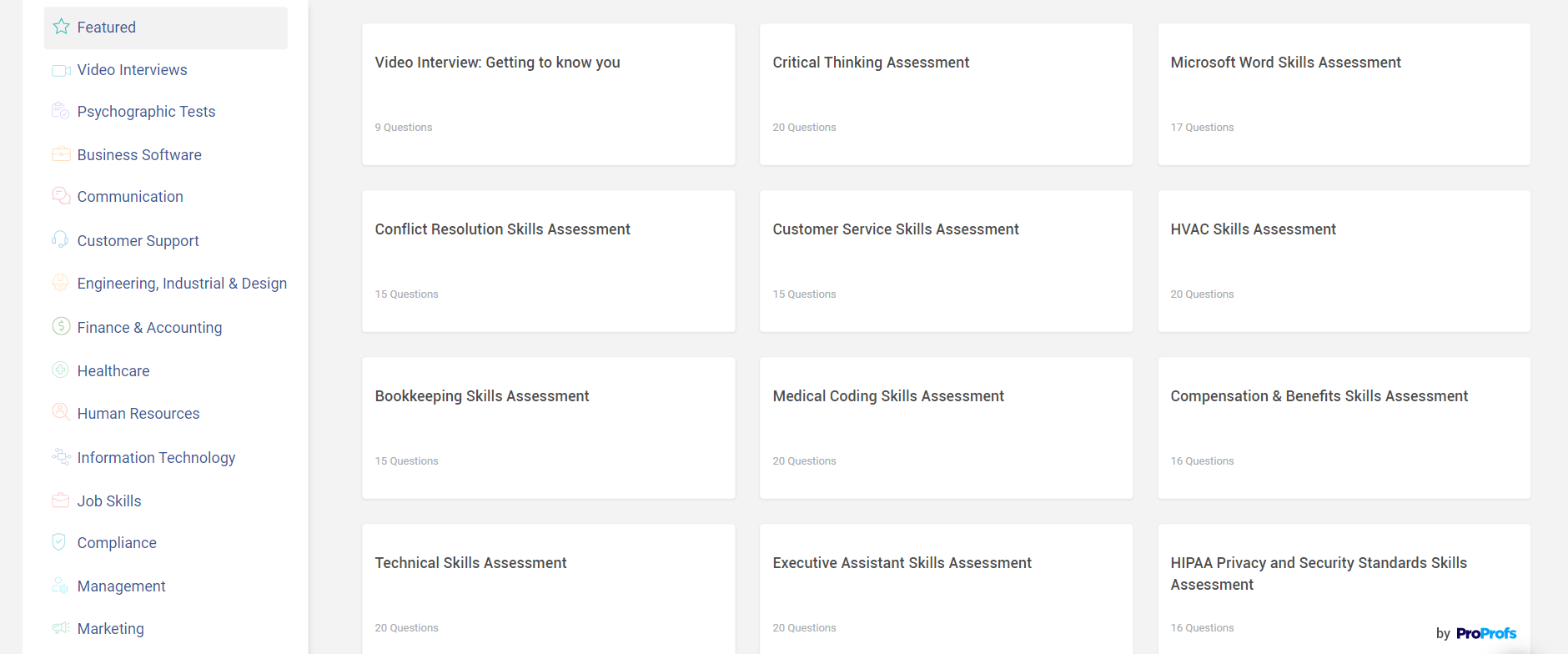
To ensure your course meets its objectives, start by assessing the specific skills and knowledge gaps among your learners. This process involves identifying areas where improvement is needed and aligning these needs with the broader goals of your organization.
2. Create a Course Plan
Once you’ve identified the gaps, create a detailed plan that clearly outlines the overall scope of your course, including its content, delivery methods, and evaluation criteria. In this regard, you can use course templates as they offer a readymade format and structure.
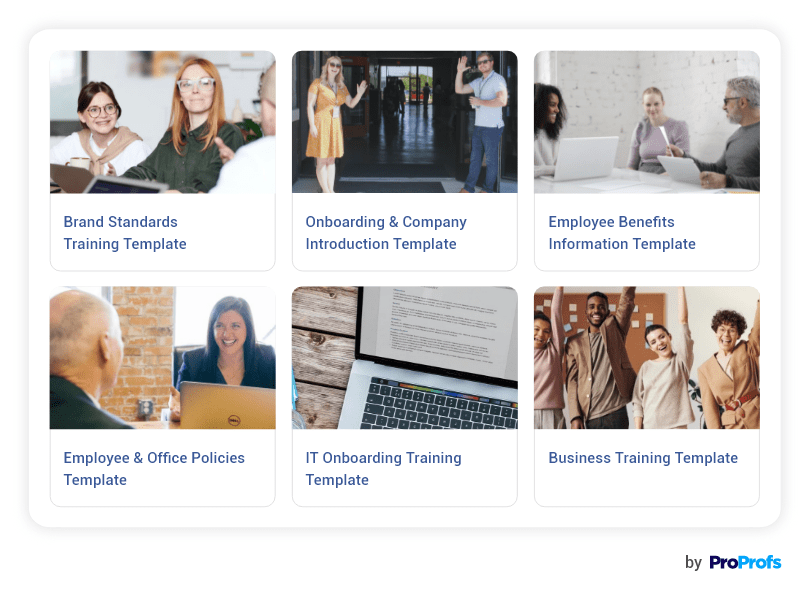
This plan serves as a roadmap for the entire course development process, ensuring a systematic and organized approach.Once you have the plan with you, start creating your courses.
3. Incorporate Varied Learning Activities
Tailor your elearning course to cater to different learning styles, encompassing visual, auditory, kinesthetic, and reading/writing preferences.
This approach ensures that each learner can engage with the material in a way that best suits their individual learning preferences.
4. Make Your Content Engaging
Enhance the presentation of information by incorporating a mix of media and formats. This could include text, images, audio, video, animations, simulations, and interactive elements. By diversifying the means of delivery, you create a more engaging and inclusive learning experience.
Employ gamification, storytelling, and scenario-based approaches to create immersive and realistic learning experiences. By appealing to emotions and individual interests, you enhance the overall effectiveness of the educational process.
5. Use an eLearning Authoring Tool
Invest in a rapid eLearning authoring tool to streamline the course creation and editing process.
This tool allows for easy and efficient course development, ensuring a smooth and timely delivery of your course content.
6. Focus on Microlearning
Avoid overwhelming learners by breaking down the information into manageable and meaningful chunks.
Why am I saying so?
Microlearning is 17 percent more efficient than traditional, longer-duration courses.
Maintain a focused and digestible approach rather than attempting to cover too much in one course.
7. Collect Feedback
Gather feedback from learners and stakeholders at various stages of course development.
So, how can you collect feedback?
You can collect feedback through surveys, interviews, focus groups, and observation during various stages of course development. Engage them regularly to gather insights on content relevance, effectiveness, and overall satisfaction to refine and improve the learning experience.
Use this feedback to make continuous improvements, ensuring the course remains relevant and effective.
Get Free eLearning Authoring Software — All Features, Forever.
We've helped 567 companies train 200,000+ employees. Create courses in under a minute with our AI LMS or use 200+ ready-made courses on compliance, harassment, DEI, onboarding, and more!
Top 5 eLearning Course Platforms
Here are some of the best platforms you can try. I have listed the top 5 tools that our organization has tried out.
1. ProProfs Training Maker – Best for Employee Training
My organization used ProProfs Training Maker as our primary learning management system. Not only did it allow us to create courses and integrate quizzes and surveys, but it also enabled real-time progress tracking and provided insightful LMS reports on course engagement levels and learners’ involvement.
We benefited from its capability to use existing training materials such as docs, images, videos, and presentations. Furthermore, the tool allowed us to create learner groups and sub-groups, assigning different roles and permissions based on group, team, department, and location.
Its features, including due-date reminders, gamification, a Q&A community, learning paths, and a library of customizable courses and templates designed by experts, greatly streamlined our training processes.
Pricing:
Forever free plan (up to 10 learners). Paid plan starts at $1.99/learner/month for large teams. No hidden charges. 15-day money-back guarantee.
2. Udemy – Best for Video Courses
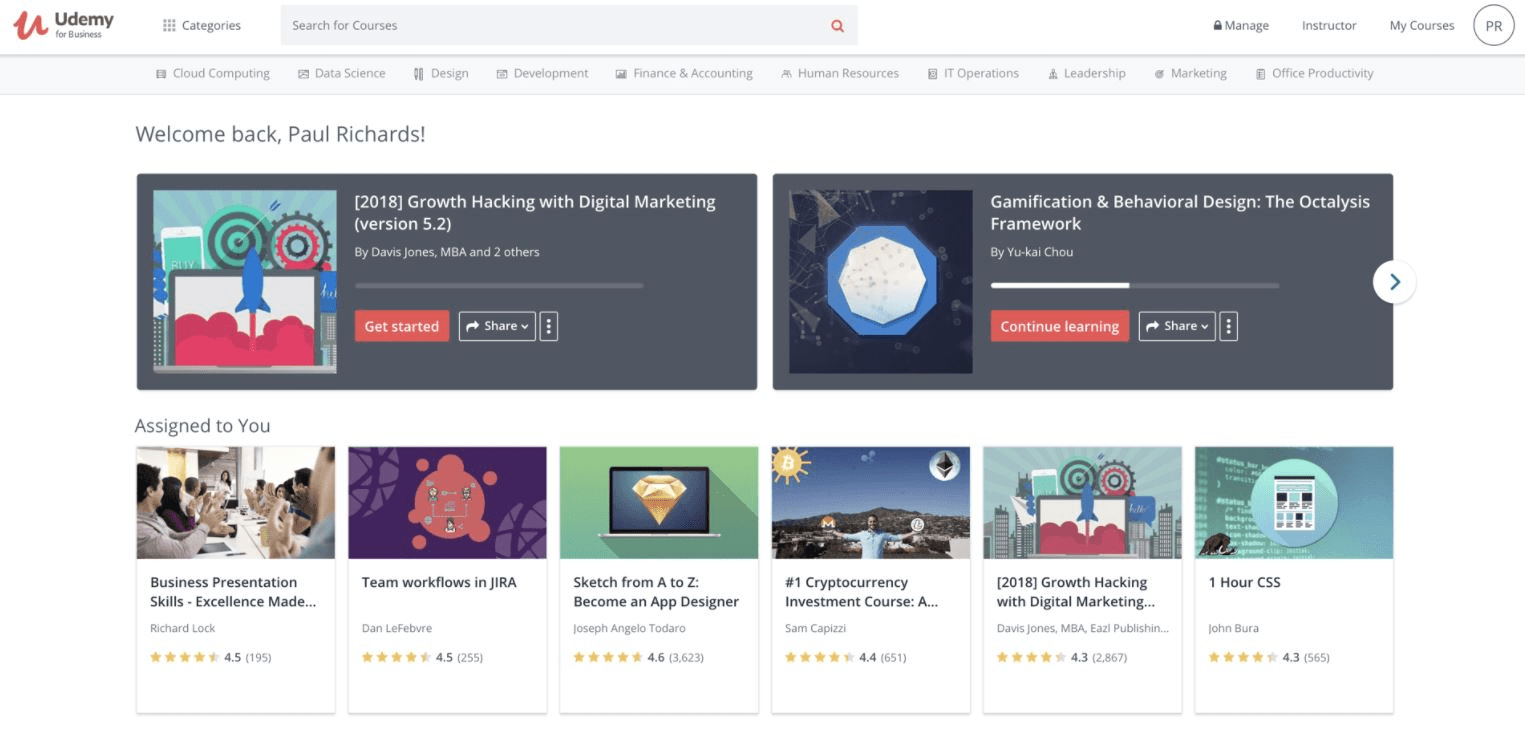
Udemy serves as a top-tier online learning platform for both businesses and students, offering a diverse array of courses on various subjects. It operates as a massive open online course (MOOC) platform that enables instructors to create engaging content using images, videos, PDFs, ZIP files, and live classes.
The process of creating a course on any platform demands time and effort, but Udemy excels in simplifying it, especially for new instructors. Udemy provides learners with engaging and comprehensive video courses catering to diverse interests and skill levels. From programming to photography, business to personal development, Udemy’s video courses empower individuals to learn at their own pace and achieve their goals effectively.
Udemy has forged partnerships with popular niche content sites to aid instructors in promoting their courses. Its stringent course quality checklist ensures that courses maintain a professional standard, are marketable, and deliver a superior learning experience.
Pricing:
Starts at $30/month/user. Access to 11,000+ top courses. Certification prep for 200+ exams.
3. Teachable – Best for Selling Digital Downloads
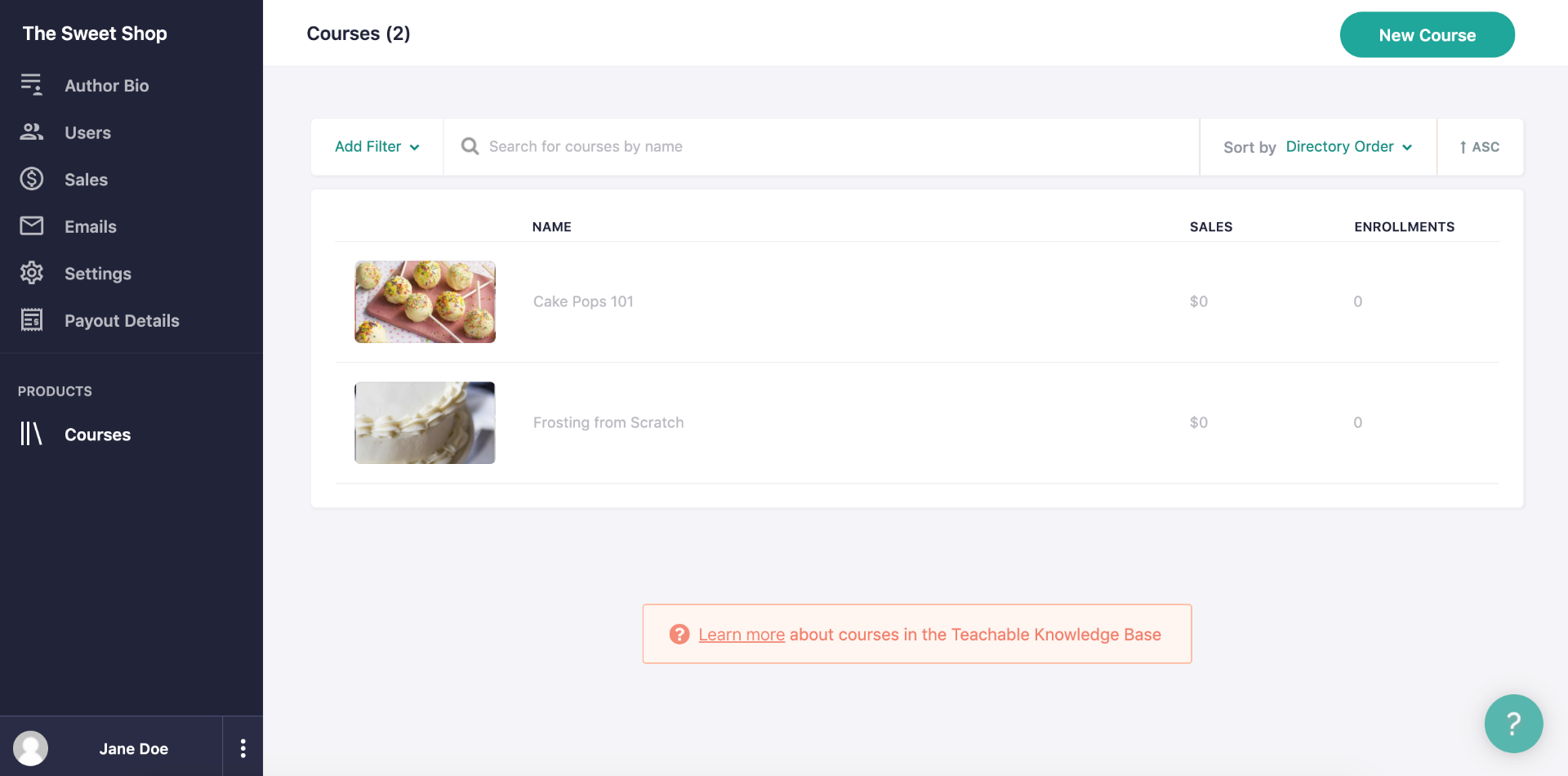
Teachable offers a versatile platform for creators to monetize their expertise through digital downloads. With an intuitive interface, it simplifies the process of selling ebooks, audio files, templates, and more.
Creators can quickly upload content, customize product details, and start generating revenue. The tool provides resources and support to help creators maximize their sales potential. Whether supplementing existing products or diversifying income streams, Teachable empowers creators to reach a wider audience and boost their earnings effortlessly.
Join the thriving community of over 100,000 creators and unleash the potential of digital downloads with Teachable.
Pricing:
Starts at $0/month ($1 + 10% transaction fee). Paid plans start at $39/month. 5 published products of each type. 1 membership tier.
4. Thinkific – Best for Marketing and Selling Courses
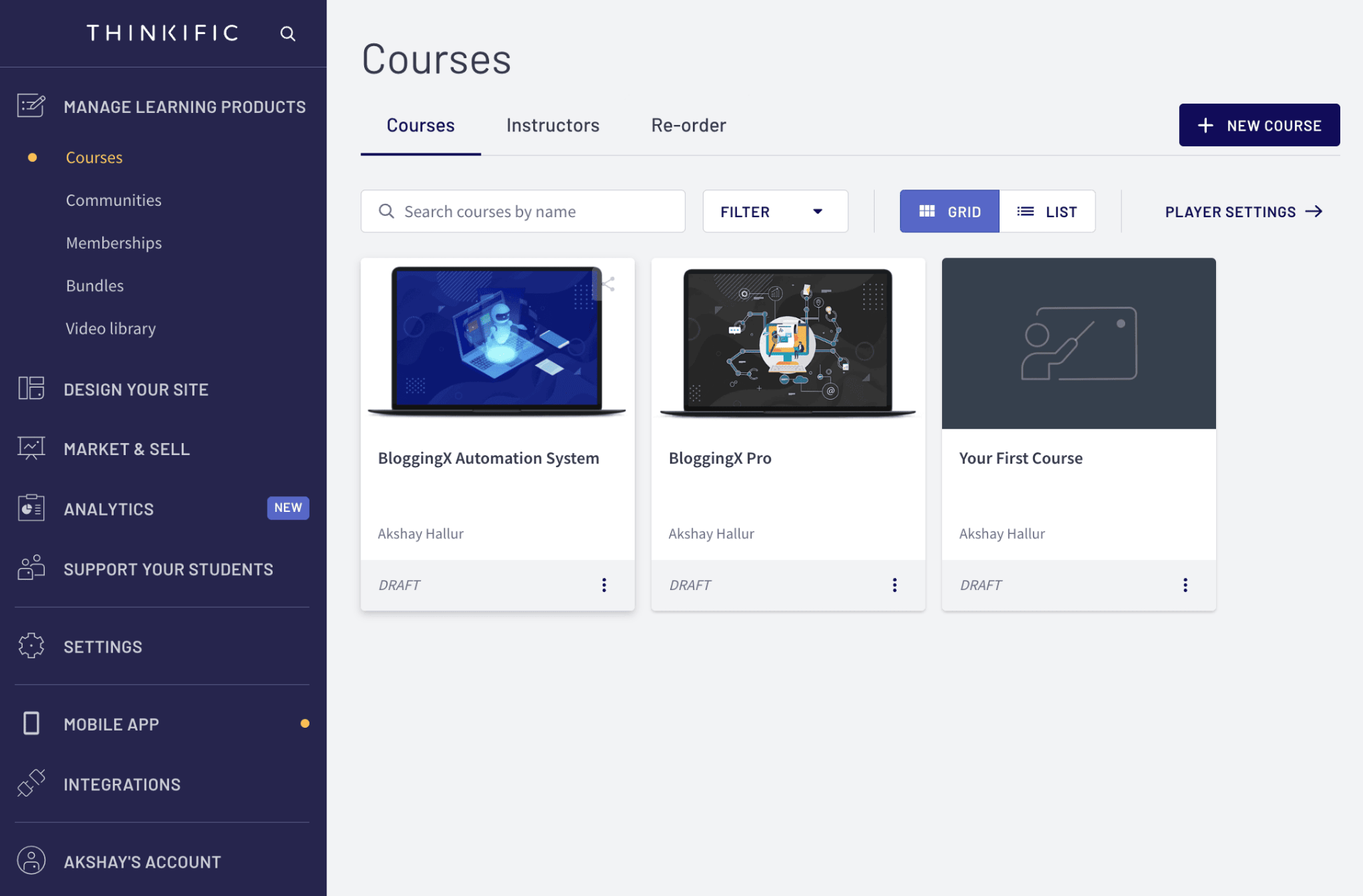
Thinkific serves as the top choice for educators aiming to monetize their expertise through online course sales. This platform distinguishes itself by providing a suite of tools specifically for educators, enabling them to create, market, and sell courses with ease.
The platform assists educators in raising awareness through promotional tools. Thinkific’s integrated marketing toolkit allows educators to focus more on their passion—teaching and creating impactful content—while reducing time spent on administrative tasks.
Moreover, with the launch of TCommerce, Thinkific enhances its capabilities significantly. This feature boosts the platform’s functionality by automating administrative tasks and offering advanced selling tools designed to increase course sales by up to 50%.
Pricing:
Free plan available (Limited to one course). Paid plan starts at $36/month. 5 spaces per community. 1 administrator.
5. Coursera – Best for Obtaining Online Certificates
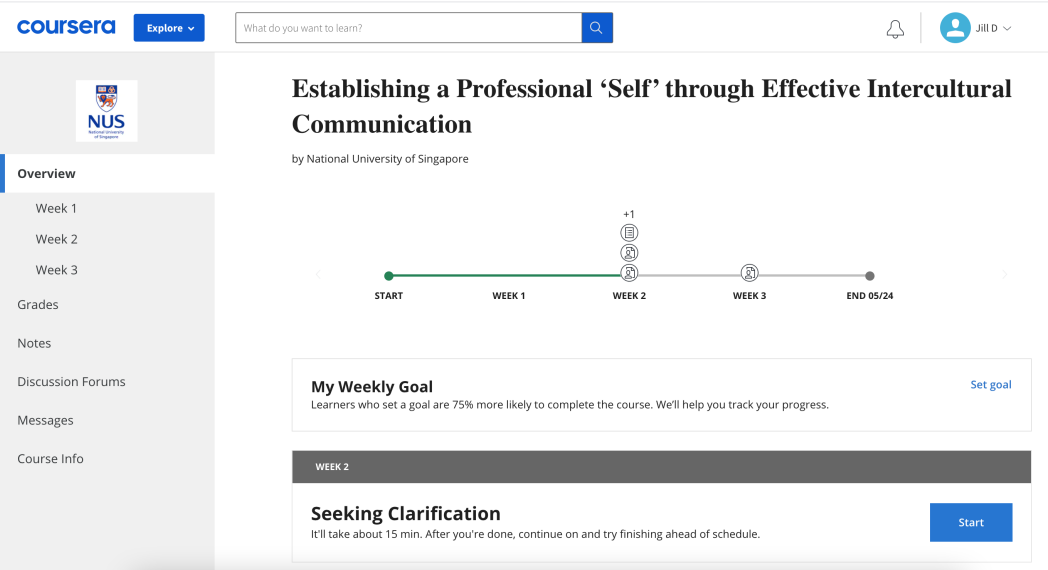
My organization often uses Coursera to obtain elearning certificates to ensure our team members are at the forefront of their respective fields. This platform stands out for its comprehensive range of courses and specializations offered in partnership with leading universities and companies worldwide.
It enables our employees to gain new skills, stay updated with industry trends, and earn certifications that are recognized globally, all while balancing their work commitments. The flexibility of learning at their own pace, coupled with access to a vast library of resources, interactive assignments, and peer feedback mechanisms, makes Coursera an invaluable tool for professional development.
Whether it’s enhancing technical know-how, diving into data analysis, or mastering project management, Coursera offers tailored learning paths that align with our organization’s goals and employees’ career aspirations.
Pricing:
Starts at $399/user/year. Access to nearly 200,000 clips. 4,000+ courses with 55+ professional elearning certification courses.
If you want to know more about online learning platforms.
How to Choose the Right eLearning Course
Choosing the right online eLearning course can feel like finding a needle in a haystack, right?
But here are some easy ways to find the right courses.
First, consider what skills or knowledge you want your employees to learn. Is it to improve their work, learn something new, or improve at certain tasks?
Next, check if the course is from a reliable source. Choose courses from well-known providers. Also, see what other trainers say about the course. Their opinions can help a lot.
Think about how the course fits with your training schedule. Is it too long or just right?
And finally, consider the price. Some free elearning courses are good but paying might get you more detailed information.
Also, if you are looking for ways to choose an online course platform, here’s a video:
Ready to Deliver eLearning Courses?
As you’ve seen, eLearning has evolved far beyond static content and rigid schedules. It’s now a dynamic landscape offering engaging, accessible experiences that equip you with valuable skills and recognized certifications.
Take the first step today! With the vast array of courses and platforms available, you will find the perfect fit for your needs and learning style.
Remember, the key is to identify your goals, research reputable courses, and embrace the flexibility and convenience that eLearning offers.
 Tips
Tips
We’d love to hear your tips & suggestions on this article!
Get Free eLearning Authoring Software — All Features, Forever.
We've helped 567 companies train 200,000+ employees. Create courses in under a minute with our AI LMS or use 200+ ready-made courses on compliance, harassment, DEI, onboarding, and more!

 We'd love your feedback!
We'd love your feedback! Thanks for your feedback!
Thanks for your feedback!


![What Are eLearning Templates? [Examples & How to Choose]](https://www.proprofstraining.com/blog/wp-content/uploads/2024/06/Feature_TM_What-Are-eLearning-Templates_-Examples-Benefits-How-to-Choose.png)




